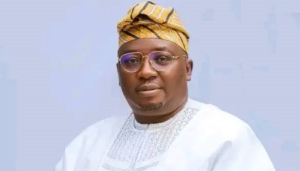The Federal Government of Nigeria, in partnership with the World Bank and African Development Bank (AfDB), is working to provide electricity to selected universities and teaching hospitals.

Mr Abba Aliyu, Managing Director, Rural Electrification Agency (REA), said this on Friday, September 20, 2024, in Abuja at the Energising Education Programme 2024 Stakeholders’ Engagement Forum (SEF).
Aliyu stated that over $250 million had been spent on phases 1, 11 and 111 to deploy infrastructure, build distribution networks, upgrade substations, and meter connecting areas.
He highlighted the construction of world-class training centres for renewable energy.
Minister of Power, Adebayo Adelabu, emphasised energy access as crucial for education, progress, and development.
Adelabu, represented by Mr Bem Ayangeaor, Assistant Director of Renewable and Rural Power Access, highlighted that electricity enabled schools to extend learning hours, utilise educational technology, and create safe and comfortable environments.
“This, in turn, boosts enrollment, improves academic performance, and enhances teacher-student productivity.
“The Energising Education Programme (EEP) was conceived to address electricity access issues in educational institutions.
“While many Nigerian universities are connected to the national grid, the consistency and quality of electricity supply vary greatly, especially in rural areas.
“Educational institutions face challenges in securing reliable and affordable electricity due to infrastructure limitations, financial constraints, and technical difficulties, hindering quality education and undermining the academic experience.”
However, Adelabu noted opportunities for innovation and collaboration through investing in renewable energy technologies, improving grid infrastructure, and promoting energy efficiency.
He stressed the importance of sustainability in unlocking the potential of energy access and education.
“To ensure continued impact, beneficiary institutions must take ownership of EEP projects and actively participate in their sustainability,” the minister said.
Olufemi Akinyelure, Head of the Nigerian Electrification Project (NEP) at the Rural Electrification Agency (REA), emphasised the importance of collaboration and communication between REA and universities at a recent forum.
He said the event brought together vice chancellors, chief medical directors, directors of physical planning/works, legal officers from Energising Education Programme (EEP) universities, and other key stakeholders to discuss ways forward on the projects.
He said the forum aimed to address concerns surrounding EEP Phase I, focusing on urgent interventions to enhance the sustainability of power plants deployed during this phase.
He said EEP inaugurated in 2018 sought to provide reliable power supply to 37 federal universities and seven affiliated teaching hospitals nationwide.
“These institutions are being equipped with solar hybrid power plants, capable of generating over 100 Megawatts (MW) of clean energy.”
Some of the benefitting universities said that the project would assist in ensuring steady power supply.
Prof. Nyaudoh Ndaeyo, Vice Chancellor of the University of Uyo, expressed relief over the arrival of a new energy project, stating that energy issues had long plagued Nigerian universities.
He emphasised that, for the project to be sustainable, schools must take ownership.
“The coming of this project is a relief,” Ndaeyo said.
Also, Mrs Ruksiyatu Ahmed, Director of the Physical Planning Unit at Modibo Adamawa University in Yola, said the project’s timing couldn’t be better and its importance can’t be overstated.
“Coming up with a sustainable way of getting energy is crucial.
“We’re grateful to those who conceived this idea and made it a reality,” Ahmed noted.
The Rural Electrification Agency (REA) and beneficiary universities have signed a collaborative agreement to ensure the sustainability of the projects.
By Constance Athekame
